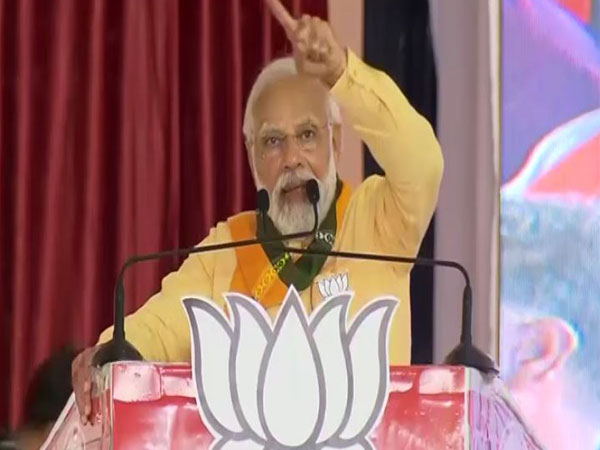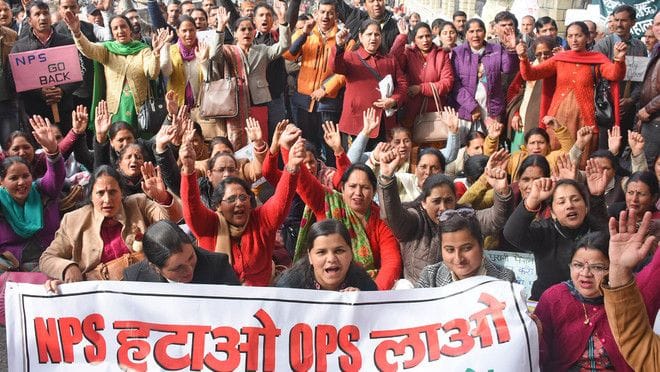The Congress came back to power in Karnataka on its own power, winning or taking a lead in 137 of the 224 seats, after a gap of 10 years. The voters gave a clear mandate to the Congress.
With the defeat of the Bharatiya Janata Party (BJP) in Haryana and Karnataka, the saffron party must learn that it is not possible to win an election by targeting Congress or any other party. Let us analyse the factors that contributed to the defeat of the BJP in Karnataka.
‘MODI-MODI’ CAN’T BE VIJAY MANTRA EVERYTIME

Despite recent experiences in various states, with Himachal being the most recent example, it is evident that Prime Minister Modi is not able to do all the work if the workforce in the state is weak. Therefore, the Bharatiya Janata Party (BJP) relied on him once again. However, this did not prove to be successful. Therefore, the sooner the BJP realises that the mantra of Prime Minister Modi cannot win them every election, it will be beneficial for the party.
WEAK STATE LEADERSHIP

Voters are not deluded; they recognize the need for a strong leader in the state. The BJP sidelined the popular and influential leader BS Yediyaurappa and replaced him with the controversial Basavaraj Babu, who was frequently accused of being ‘out of control’.
The Congress campaign in Karnataka was largely spearheaded by Chief Minister Siddaramaiah with DK Shivakumar spearheading the party’s campaign, with the exception of the Bharat Yatra. Apart from Chief Minister Yogi in Uttar Pradesh and Chief Minister Himanta in Assam, the BJP does not have prominent leaders in other states with the potential to be decisive figures in the upcoming election.
BJP COULDN’T WIN PEOPLE’S HEART

The Bharatiya Janata Party (BJP) must recognize the significance of freebies. For some time now, the Congress has been honing its freebies strategy and utilised it as a major factor in the Karnataka electoral process. Conversely, the BJP has had a history of reneging on its promises. For instance, former Prime Minister Basavaraj was quoted as having promised to provide free housing to Hindu temples, however, he did not follow through on this promise. Furthermore, he also failed to implement any social welfare programmes. It is understandable why one would select a leader who is not capable of providing services to the people.
NO COUNTER TO CORRUPTION ALLEGATIONS IN KARNATAKA
One of the Congress’ key campaign strategies in Karnataka this election was to attack the BJP with allegations of corruption, which seemed to have resonated well with the electorate.
In Karnataka, corruption was a major issue in the run-up to the election. The Congress kept the focus on corruption through its ‘40% Sarkara’ campaign and ‘PayCM’ written posters all over the state, which were distributed in cities and circulated on social media platforms.
These allegations could not be countered by the BJP, which helped the Congress win the election.
AMUL VS NANDINI
After Amul declared that it would be selling its products online in Karnataka, the Congress claimed that this was a sign of the Centre’s intention to eliminate the state’s cooperative milk brand, Nandini. With over 25 lakh people residing in Karnataka relying on the dairy industry, the allegation that the industry may be in jeopardy caused a state of fear and drew the attention of the electorate away from the BJP.
LIMITED HINDUTVA APPEAL
The Bharatiya Janata Party’s (BJP) campaign, which was based on a number of issues, including the prohibition of the wearing of the traditional Hijab, the prohibition of Halal meat and the lifting of reservations imposed on Muslims, was successful in garnering the support of Muslim voters. Despite the BJP’s reputation for being a Hindutva party, their decision to move towards secularism did not go unnoticed. The majority of Muslim voters supported the Congress, while the Hindu electorate was divided.






